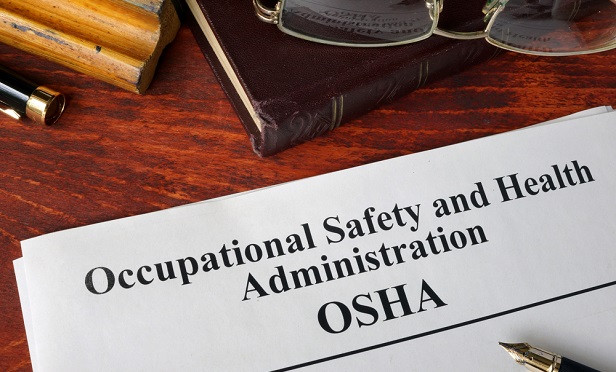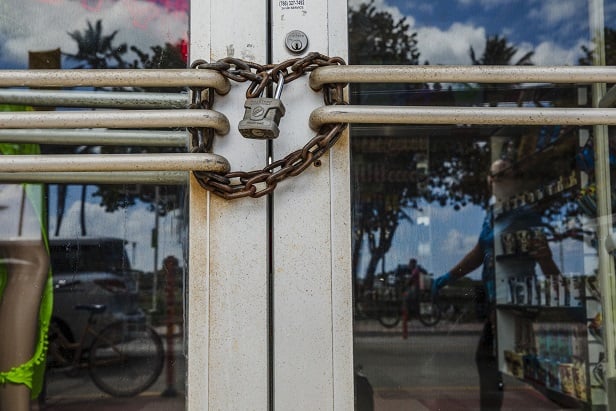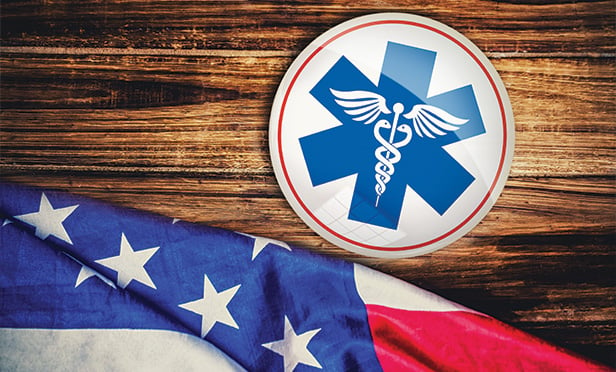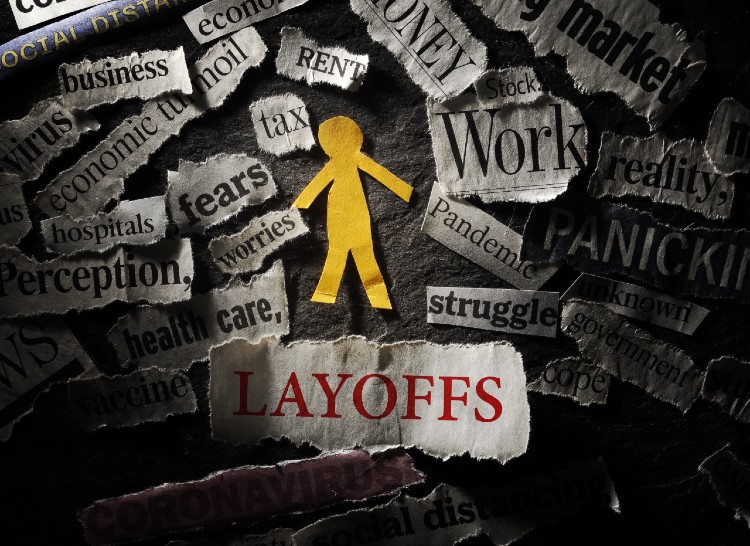
1. Keep rechecking your budget to be sure it’s as bare-bones as possible.
Some items you were reluctant to cross off earlier may later seem, in the light of lockdown and social distancing, not to be so vital to your everyday morale—particularly as others chime in with how they’re coping with doing without. Haircuts, for instance, or all those streaming subscriptions. Maybe you’ll try cutting your own hair or watching that stack of DVDs in the basement instead of bingewatching the most recently released offering on Netflix. And if you find items that suddenly don’t seem so essential, you can put that money toward paying off bills or buying groceries, or even toward your nascent emergency fund. Good luck!

Household finances are taking a beating during this turbulent time.
Still, there are some things you can do to help yourself.
We’ve found 10 suggestions you might want to have a look at.

10. Start the emergency fund NOW.
According to The New York Times, even if you’re in the middle of a crisis, there are things you can do to try to improve the situation. One way is to start to build an emergency fund right this minute. The first step? Figure out what you’ve got coming in and how much you’ve got going out. Then look for ways to find more income—whether through extra gigs, that $1,200 relief check most of the country is still waiting for, even refunds on returned purchases—and find a way to set aside at least a fraction of it for later.

9. Figure out ways to cut spending.
What’s essential? Lights, heat, roof, gas for the car, food for the table. What’s not? Cable, streaming services, subscriptions, new clothes. Put them on your list to revisit later, if you have to, to make cutting them out more palatable, but get rid of everything you and your family absolutely don’t need to survive.

8. List all the ways you can raise money, even if they’re things you shouldn’t do (yet)—like retirement plan withdrawals or home equity loans.
ING suggests compiling all the potential sources of cash should worse come to worst and you have to resort to them. At least you’ll have a list to hand, and you’ll know how much you might be able to raise should the need arise.
Advertisement

7. Consult with your partner or spouse.
Now is no time for secrets. If there are other sources of debt that could spring up and wreck your plan, you need to know; equally, if there’s another potential source of cash that could keep your heads above water, ditto. If it’s on your list, it may give you the fortitude (or desperation) to hold off on any potential plan to upset any progress you may make. And your partner may have some good suggestions on how to tweak the plan so that it works better.

6. Set up strategies to tackle next month, and the month after, and the month after that.
As cash gets tighter—or, alternatively, you begin to find alternate sources of income—you need to have a schedule to get your finances back in shape or keep them from derailing completely. What works right now may not work at all in the months to come, depending on what the job market and the stock market do. Optimistic plans to reopen the economy may instead lead to a second wave of Covid-19; you need to be as prepared for that as you do the potential for a new job with benefits.

5. Don’t forget to talk to all your creditors, even if you don’t think you need to ask for favors right now.
Find out what measures each is willing to offer on forbearance, fee cancellations, etc., and keep track of them so that you know what kind of help you might be able to call on should it become necessary.

4. Put yourself on the list for payment.
Forbes suggests that one way you can make your emergency cash go farther is to “pay it to yourself” if you manage to get one creditor paid off and have extra money available. If it takes as long for the job market to come back as some predict—the Federal Reserve Bank of St. Louis has projected the possibility of a 32 percent unemployment rate, worse than during the Great Depression—you might need that money to feed yourself and your family until things improve.

3. Try to transfer credit card balances.
If you can get a zero-percent interest card, you’ll still need to make payments, but at least the interest won’t be accruing quite so fast—and with luck, the economy will get back on track quickly enough for you to make some real headway against the balance.
Advertisement

2. Try to find new or additional work.
As some jobs have disappeared, possibly for good, others are soaring right now—such as delivery drivers and supermarket clerks. While they may not be what you’re used to, if they keep cash coming into the household to tide you over till something else materializes, they can at the very least help stretch that emergency budget.

1. Keep rechecking your budget to be sure it’s as bare-bones as possible.
Some items you were reluctant to cross off earlier may later seem, in the light of lockdown and social distancing, not to be so vital to your everyday morale—particularly as others chime in with how they’re coping with doing without. Haircuts, for instance, or all those streaming subscriptions. Maybe you’ll try cutting your own hair or watching that stack of DVDs in the basement instead of bingewatching the most recently released offering on Netflix. And if you find items that suddenly don’t seem so essential, you can put that money toward paying off bills or buying groceries, or even toward your nascent emergency fund. Good luck!

Household finances are taking a beating during this turbulent time.
Still, there are some things you can do to help yourself.
We’ve found 10 suggestions you might want to have a look at.

10. Start the emergency fund NOW.
According to The New York Times, even if you’re in the middle of a crisis, there are things you can do to try to improve the situation. One way is to start to build an emergency fund right this minute. The first step? Figure out what you’ve got coming in and how much you’ve got going out. Then look for ways to find more income—whether through extra gigs, that $1,200 relief check most of the country is still waiting for, even refunds on returned purchases—and find a way to set aside at least a fraction of it for later.

9. Figure out ways to cut spending.
What’s essential? Lights, heat, roof, gas for the car, food for the table. What’s not? Cable, streaming services, subscriptions, new clothes. Put them on your list to revisit later, if you have to, to make cutting them out more palatable, but get rid of everything you and your family absolutely don’t need to survive.

8. List all the ways you can raise money, even if they’re things you shouldn’t do (yet)—like retirement plan withdrawals or home equity loans.
ING suggests compiling all the potential sources of cash should worse come to worst and you have to resort to them. At least you’ll have a list to hand, and you’ll know how much you might be able to raise should the need arise.
Advertisement

7. Consult with your partner or spouse.
Now is no time for secrets. If there are other sources of debt that could spring up and wreck your plan, you need to know; equally, if there’s another potential source of cash that could keep your heads above water, ditto. If it’s on your list, it may give you the fortitude (or desperation) to hold off on any potential plan to upset any progress you may make. And your partner may have some good suggestions on how to tweak the plan so that it works better.

6. Set up strategies to tackle next month, and the month after, and the month after that.
As cash gets tighter—or, alternatively, you begin to find alternate sources of income—you need to have a schedule to get your finances back in shape or keep them from derailing completely. What works right now may not work at all in the months to come, depending on what the job market and the stock market do. Optimistic plans to reopen the economy may instead lead to a second wave of Covid-19; you need to be as prepared for that as you do the potential for a new job with benefits.

5. Don’t forget to talk to all your creditors, even if you don’t think you need to ask for favors right now.
Find out what measures each is willing to offer on forbearance, fee cancellations, etc., and keep track of them so that you know what kind of help you might be able to call on should it become necessary.

4. Put yourself on the list for payment.
Forbes suggests that one way you can make your emergency cash go farther is to “pay it to yourself” if you manage to get one creditor paid off and have extra money available. If it takes as long for the job market to come back as some predict—the Federal Reserve Bank of St. Louis has projected the possibility of a 32 percent unemployment rate, worse than during the Great Depression—you might need that money to feed yourself and your family until things improve.

3. Try to transfer credit card balances.
If you can get a zero-percent interest card, you’ll still need to make payments, but at least the interest won’t be accruing quite so fast—and with luck, the economy will get back on track quickly enough for you to make some real headway against the balance.
Advertisement

2. Try to find new or additional work.
As some jobs have disappeared, possibly for good, others are soaring right now—such as delivery drivers and supermarket clerks. While they may not be what you’re used to, if they keep cash coming into the household to tide you over till something else materializes, they can at the very least help stretch that emergency budget.

1. Keep rechecking your budget to be sure it’s as bare-bones as possible.
Some items you were reluctant to cross off earlier may later seem, in the light of lockdown and social distancing, not to be so vital to your everyday morale—particularly as others chime in with how they’re coping with doing without. Haircuts, for instance, or all those streaming subscriptions. Maybe you’ll try cutting your own hair or watching that stack of DVDs in the basement instead of bingewatching the most recently released offering on Netflix. And if you find items that suddenly don’t seem so essential, you can put that money toward paying off bills or buying groceries, or even toward your nascent emergency fund. Good luck!
Marlene Satter
Marlene Y. Satter has worked in and written about the financial industry for decades.







